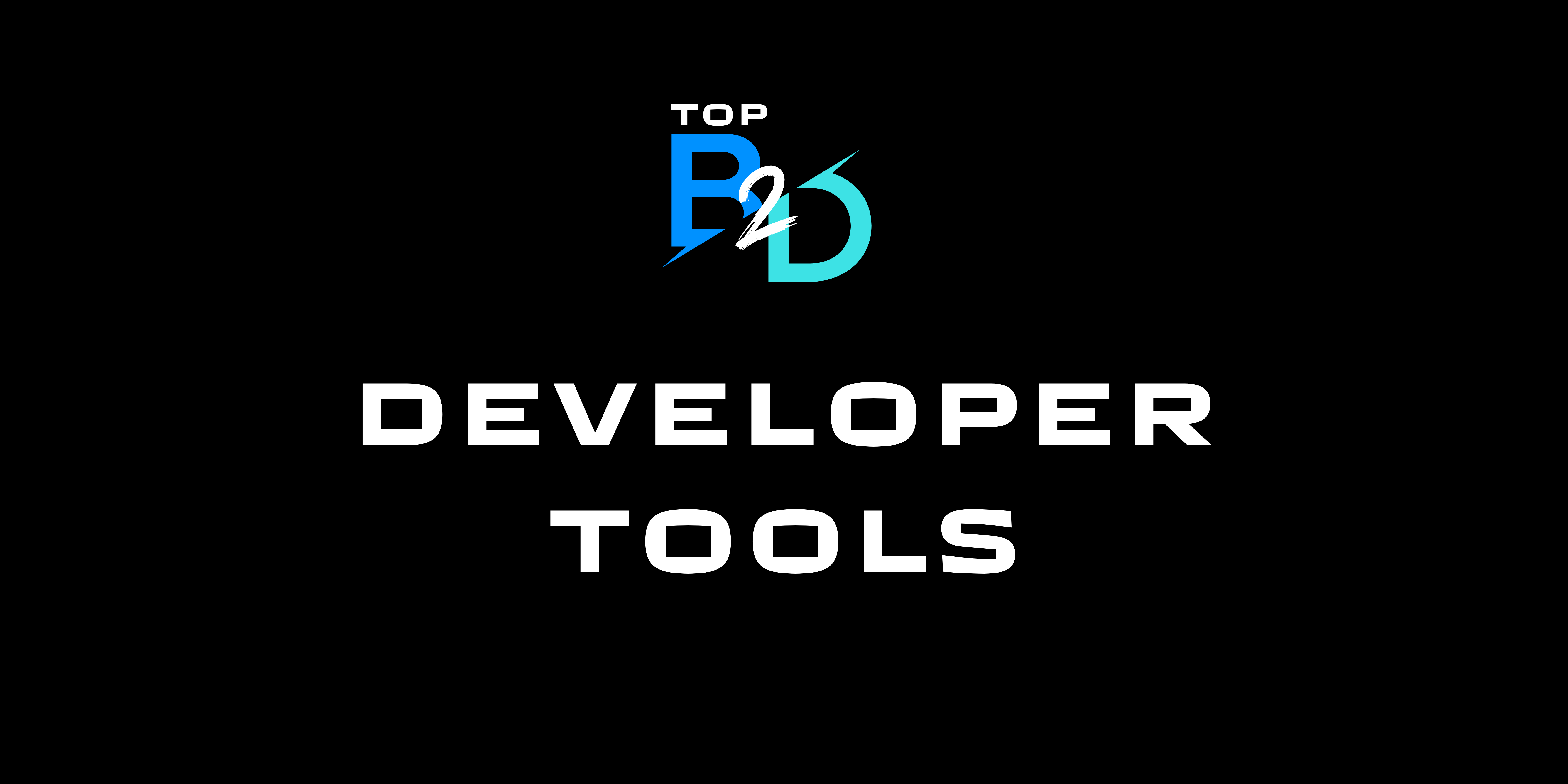Understanding the Importance of Developer Tools
In the rapidly advancing digital era, understanding the role and importance of developer tools becomes imperative for businesses aiming to reach out to software developers. Developer tools are critical for any coding project, acting like a comprehensive toolbox that developers use to debug, design, or alter code efficiently. These tools can significantly elevate a software developer’s productivity, facilitating smoother workflows and enabling them to code more accurately and quickly.
The Necessity of Developer Tools in Businesses
From a business perspective, marketing and selling to software developers require an understanding of the tools that are integral to their daily tasks. Offering products or services that align with the utilities provided by these tools can provide a significant edge. Your products need to be positioned in a way that successfully demonstrates how they can enhance the developer’s toolkit, therefore becoming an indispensable part of their operation. Understanding what tools developers use, their preferences, and how they interact with these tools could be the key to successful marketing and sales campaigns.
Utilizing Developer Tools for Better Communication
Moreover, developer tools can serve as a communication medium between businesses and software developers. With the aid of these tools, you’ll have a better understanding of their work environment, along with their pain points and needs. It can bridge the communication gap between non-technical marketers or salespeople and highly technical software developers. In fact, by demonstrating competence and a thorough understanding of these tools, businesses can build credibility and foster stronger relationships with software developers.
Driving Innovation through Developer Tools
Additionally, comprehending the importance and functionalities of developer tools enables businesses to drive innovation. Innovative solutions that integrate seamlessly with these tools can satisfy the developers’ need for efficiency, stability, and scalability. Consequently, highlighting such capabilities of your product or service in your pitch can make a powerful impression on software developers. After all, developer tools do not just stand for convenience; they symbolize the endless possibilities of technological innovation.
Remember, when it comes to marketing to or collaborating with software developers, understanding and showcasing your knowledge of their tools is a business imperative.
Best Developer Tools in 2021 for Efficient Coding
In a rapidly evolving digital world, making use of the best developer tools is crucial for efficient coding. The dynamic tech environment in 2021 presents endless possibilities but also unique challenges. Hence, employing the right tool can help to stay on top of the latest technologies and deliver high-quality projects consistently.
Streaming Tools for Developers
Streaming tools form the backbone for understanding how your applications run. They allow developers to monitor the performance of their applications in the real world and troubleshoot issues more effectively. Among the best streaming tools for developers in 2021 are DataDog, New Relic, AppDynamics and ScoutAPM. These tools offer comprehensive application performance metrics, server monitoring capacities, and user interface for an effortless experience.
Code Editors
The code editor is an indispensable tool for any developer. As technology progresses, the demand for more advanced programming languages increases. Code editors such as VS Code, Sublime Text, and Atom have stepped up their game in 2021, offering enhanced features like intelligent code completion and debugging support for a wide range of programming languages. These editors streamline the coding process and make it more efficient.
Collaboration Tools for Developers
Given the rise of remote working and distributed teams, collaboration tools have taken center stage in the developer’s toolkit. Tools like GitHub, Bitbucket, and GitLab are proving to be essential for team collaboration. Their code repositories, code review, and continuous integration pipelines are critical for maintaining quality, especially in a large codebase.
How to Optimize Your Workflow with Developer Tools
The modern working climate for software developers has rapidly evolved over the past decade, pushing developers to find more efficient and effective ways to optimize workflow. The advent of developer tools has brought a sea change to the productivity of coders worldwide. Developer tools, as a broad category of software, assist in a myriad of tasks such as debugging, automation, performance monitoring, testing and more.
Select Developer Tools That Suit Your Needs
When it comes to optimizing your workflow with developer tools, the most important aspect is to choose tools that resonate with your distinct needs and preferences. There is a wide array of tools available, each with unique attributes, making it crucial to find the ones that suit your work style. For instance, automated testing tools can boost your efficiency by handling repeatable test cases, while debuggers and compilers can dramatically improve your code quality and minimize time spent on troubleshooting bugs.
Understand the Key Features
Understanding the key features and functionalities of chosen developer tools is a must for an optimized workflow. This involves a deep dive into their capabilities. Highlighting their strengths and leverage them to your advantage would bring the best out of them. For example, collaboration tools could enhance your team’s productivity by offering real-time code editing or sharing modules, while performance monitoring tools can play a crucial role in ensuring your software setup is consistently delivering the expected results.
Integrate Tools Into Your Workflow
- Automation tools:
These can effectively reduce manual effort by automating repetitive tasks, thereby freeing up valuable time that can be used to focus on more complex coding tasks.
- Performance monitoring tools:
These allow you to effectively monitor your system’s performance, identify slowdowns, and troubleshoot problems more accurately.
- Collaboration tools:
These are essential for enhancing team collaboration, and can boost productivity, even in remote work settings.
With right strategizing and effective utilization of developer tools, software developers can profoundly optimize their workflow, greatly enhancing their productivity while simultaneously decreasing their work-related stress.
Insights into the World of Developer Tools: Users’ Reviews
In today’s fast-paced tech environment, gaining insights into the world of developer tools through users’ reviews is paramount for businesses aiming to market and sell to software developers. Users’ reviews often offer an unbiased perspective on the strengths and weaknesses of different tools, providing valuable data to companies as they consider which tools to integrate into their systems.
Understanding Developers’ Preferences
Analyzing users’ reviews of developer tools allows companies to understand the preferences and needs of developers in granular detail. From the ease of implementation and use to the functionality and reliability of the tools, these insights can help corporations design more effective marketing strategies. It also informs them of any existing gaps in the market, paving the way for potential product improvements or new product offerings that align with developers’ needs.
Importance of User Experience
Another critical insight that businesses can gain from users’ reviews is the importance of user experience in developer tools. Developers appreciate tools that not only perform their intended tasks effectively but also offer a concurrent pleasant user experience. Quicker load times, intuitive interfaces, and feature-rich environments rank high in developers’ preference, as echoed in most of their reviews.
Authentic Feedback: A Trust-Building Tool
Lastly, showcasing users’ reviews of developer tools can also act as an effective trust-building method for businesses. Developers tend to trust reviews from their peers more than promotional content from companies. By using these reviews in their marketing campaigns, businesses can exhibit transparency and authenticity, factors that are highly valued in the developer information seeking community.
Modern Developer Tools vs Traditional Methods: A Comparative Study
In the developing ecosystem, the contention between modern developer tools and traditional methods continues to inspire ongoing debate. These approaches differ significantly, each presenting its own benefits and drawbacks. Identifying the most effective tactic is crucial for business success and acceleration in the tech market.
The Emergence of Modern Developer Tools
Simultaneous to the incredible progress of technology, more sophisticated and intuitive modern developer tools have emerged. These instruments tend to provide an increased level of automation, thereby maximizing productivity and enabling developers to better focus on complex problem-solving. Furthermore, they promote a progressive skillset, and improve compatibility, leading to more consistent and high quality software. However, adopting these tools can at times lead to higher costs, necessitates substantial adaptability and demands ongoing education to ensure effective utilization.
Virtues and Limitations of Traditional Methods
Contrastingly, traditional methods in software development, although seemingly antiquated, boast several benefits too. Many developers find these techniques reliable and uncomplicated, with lowered overheads and generally swifter learning curves. Recognized approaches like waterfall, extreme programming and rational unified process have withstood the test of time, forming an integral part of the development landscape. Yet, some of these methods may lack the agility and efficiency required in today’s dynamic digital environment.
Choosing the Right Approach
The decision between modern developer tools and traditional development methods is largely contingent on the unique requirements, capabilities and objectives of each company. Businesses must undertake an objective evaluation of their strategies to ascertain the best approach. This may involve looking at factors like project complexity, budget constraints, team skills, and even company culture. And finally, it’s essential to remember that the choice isn’t necessarily binary. Often, a hybrid model that integrates aspects from both methodologies could provide the optimal solution.
Future Trends of Developer Tools: What to Expect
The software development landscape is perpetually evolving, breaching fresh horizons rapidly. With cutting-edge advancements occurring almost every day, it’s worthwhile to anticipate the future trends of developer tools and their impending impact on the software industry.
Increasing Dominance of Open Source Tools
The prominence of Open Source tools has escalated considerably and is expected to rise even further. Developers increasingly prefer tools offering flexibility, customization capabilities, community-driven development, and low cost. Open Source Tools resonate with all these aspects. Furthermore, businesses can leverage these tools to engender innovation, foster collaboration, and accelerate time-to-market.
Augmented Demand for Cross-Platform Tools
Another trend set to rule the future of developer tools is the cross-platform tools. These tools empower developers to write code once and deploy it across multiple platforms, thus expediting the development process while ensuring consistency. Given the growing diversity in platforms that users prefer, adopting cross-platform tools is pivotal for businesses aiming to extend their reach across varied user segments.
Automation and AI in the Toolkit
The incorporation of Artificial Intelligence (AI) and automation in developer tools is another breakthrough to watch out for. These innovations not only streamline coding but also eliminate manual errors, helping developers deliver high-quality software solutions. Thus, businesses wishing to strengthen their developer teams’ efficiency and agility could immensely benefit from these evolving trends.






